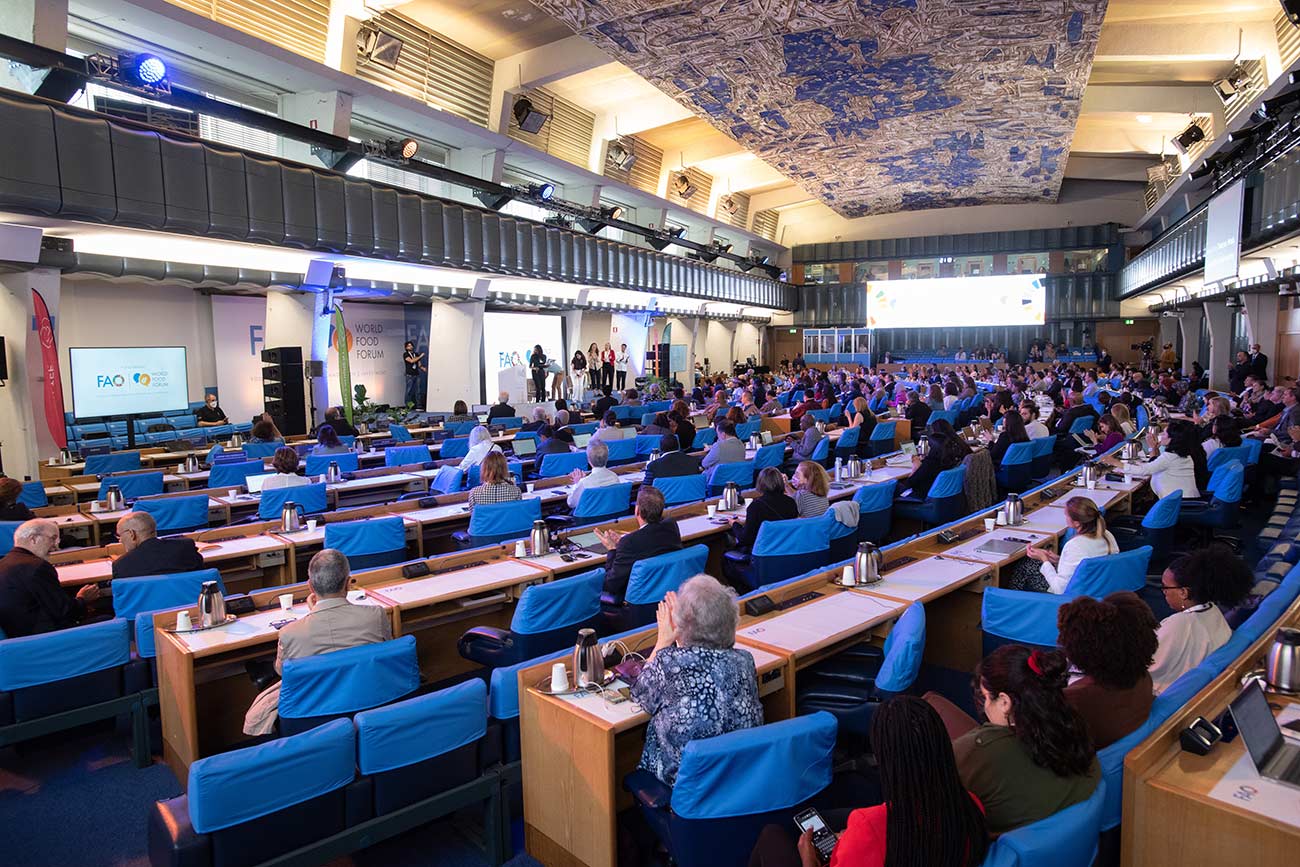WFF Youth Assembly: Agriculture at COP27 - Gaps and Proposed Actions

The discussions on COP27 during the World Food Forum’s (WFF) Youth Action Assembly revolved around the key themes identified in the YOUNGO Agriculture Working Group document for COP27. The youth mechanism of the WFF organized dialogues in smaller groups in order to touch on these topics, identifying the gaps to be addressed and the actions that can be taken in order to achieve the document’s vision. Subsequently, the discussion reflected upon actions and accountability of both policymakers and young people.
Gaps and proposed actions, listed per topic:
Agroecology
Agroecological approaches support nature-based solutions that are a fundamental part to protect, sustainably manage, and restore our ecosystems. Applying agroecological approaches contributes to food security by strengthening the production of healthy and diverse foods.
- Gaps to be addressed: financial and capacity support for farmers to make the transition; power dynamics between different stakeholders.
- Actions that can be taken: implementing agroecology concepts throughout the food chain; a follow-up mechanism should be put in place in order to ensure that existing policies on sustainable agriculture are translated into practice through a transparent framework: a transition package that farmers can adopt.
- What youth can do: learn and share more about agroecology; share success stories about agroecological transitions.
Sustainable Production, Consumption, and Diet
A just transition in the agricultural sector towards sustainable agriculture practices – such as agroecology, crop and forest integration systems, seasonal and local planting, organic and non-GMO production. Said transition needs to be an efficient, environmentally sustainable and inclusive system that does not neglect ancestral, local and traditional knowledge, but rather fosters the participation of Indigenous Peoples and women, and guarantees a sustainable generational replacement through the empowerment of youth.
- Gaps to be addressed: there exists no one-size-fits-all solution.
- Actions that can be taken: education, investments, interprofessional collaboration (One Health).
- What youth can do: promote change in modern diets and eating habits; encourage our institutions to adopt better practices (food waste management, sustainable procurement, better food choices).
Food Sovereignty and Just Transition
Food sovereignty ensures that producers/farmers are in control of the mechanisms and policies of food production and distribution, which are essential for the development of Indigenous Peoples and other traditional communities.
- Gaps to be addressed: income inequality; economic monopoly.
- Actions that can be taken: mediators between farmers and governments; tax relief and government subsidies.
- What youth can do: encourage our institutions to localize agrifood systems and reject privatization of natural resources; build on traditional knowledge and skills.
Human Rights
Recognizing that agricultural supply chains are tainted by practices of modern slavery and human trafficking, such as forced labor, as well as other forms of sexual and gender-based violence – including sexual abuse and harassment.
- Gaps to be addressed: lack of infrastructure in rural communities, human rights violations, and inadequate working conditions.
- Actions that can be taken: provide inclusive, political, and legal frameworks for rural people. Promote human rights education; develop media-awareness campaigns, integrate the knowledge of rural peoples into educational programs; develop adequate regulatory systems in agricultural supply chains and promote land reform, guaranteeing the right to land for rural workers.
- What youth can do: knowledge sharing initiatives; participate in local political processes advocating for the human rights of rural workers; promote awareness about human rights in agriculture through educational and digital tools, such as academic research, and social media campaigns.
- Case studies: WWF/BCG venture ‘open SC’ using blockchain technology to increase transparency in the food chain.
Finance, Decent Livelihoods, and Green Jobs
A consistent flow of finance and increased access to green and sustainable jobs promote decent livelihoods, thriving economies, and climate-resilient environments.
- Gaps to be addressed: enhance understanding of green jobs and finance to ensure a sufficient level of knowledge is gauged; identify and overcome barriers to accessing and landing jobs in sustainable fields, including those related to oceans, the environment, climate, and energy.
- Actions that can be taken: increase access to jobs in sustainable fields, including those related to oceans, the environment, climate, and energy; support mix-and-match financing mechanisms to maximize funding sources, as different financing schemes can uniquely and equitably finance the communities or projects.
- What youth can do: facilitate greater partnerships between educational institutions and industry representatives to further educate on sustainable agricultural approaches to nurture generations of youth and young adults in agriculture and foster land stewardship; assertively demanding allocation of funds to be inclusive, gender equal, and considerate of each community's unique characteristics, including socio-economic status. Clear expectations and use of funds are relayed accordingly.
- Case studies: “Towards a Youth Engagement Strategy (YES!) Consultation Note for a Youth Engagement Strategy at the Climate Investment Funds”
Feedback for the way forward:
- Need for further inclusivity in discussion spaces - greater attention to geographical balance and greater inclusion of Indigenous Peoples and farmers.
- Due to some technical difficulties encountered during the session, online participation was not possible. The Assembly recognizes this as a drawback for the lack of an inclusive space to discuss, and therefore would like to continue this discussion, virtually.
- The next part of the discussion/brainstorming will be on how we can work together with everyone to identify joint activities and campaigns that could be done together while preparing for COP28.
